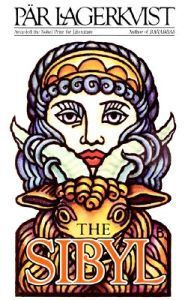What do you think?
Rate this book


154 pages, Paperback
First published January 1, 1956


"Because you denied me this, you shall suffer greater punishment than mine: you shall never die. You shall wander through this world to all eternity, and find no rest."
"I can see in your face that you're under god's curse and that what you say is true. It's plain that you're not free, that you're bound to him and that he doesn't mean to let you go. He is your destiny. Your soul is filled with him; through his curse you live a life with god. you hate him, you mock and revile him. But judging by your indignant words you care for nothing in the world but him, and are filled with him alone. With what you call your hatred of him. But this very red-hot hatred of god is perhaps your experience of the divine."
"He is not as we are and we can never understand him. He is incomprehensible, inscrutable. He is god. And so far as I comprehend it he is both evil and good, both light and darkness, both meaningless and full of a meaning which we can never perceive, yet never cease to puzzle over. A riddle which is intended not to be solved but to exist. To exist for us always. To trouble us always."
What would my life have been without him?...If I had never felt the bliss that poured from him, the anguish and pain that is his also, and the wonder of being annihilated in his blazing arms, of being altogether his? Of feeling his rapture, his boundless bliss, and sharing god's infinite joy in being alive?